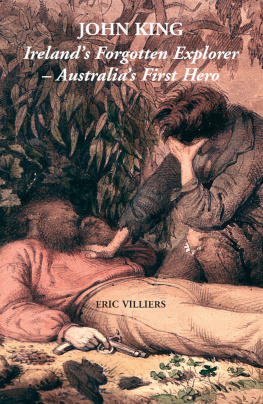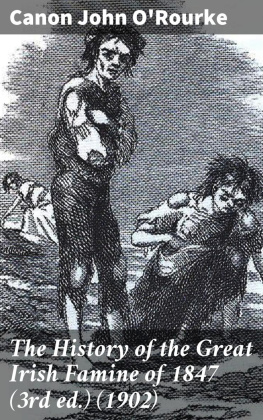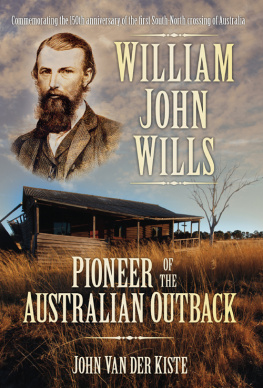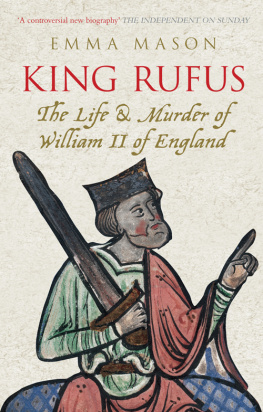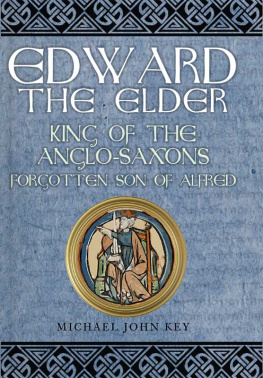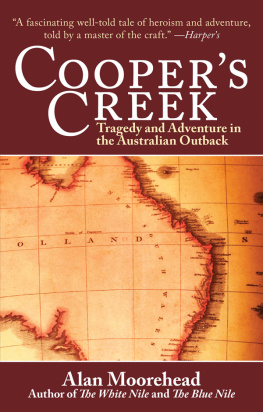As a reporter, editor and freelance journalist in Northern Ireland, Eric Villiers covered everything from the troubles and politics to crime and sport. Along the way the history of modern Ireland became an abiding interest and led to his research into forgotten news: the untold stories, scandals, cover-ups and triumphs of Irish men and women who have been airbrushed from popular history because of the contemporary social, racial, political or cultural imperatives that shaped their lives and reputations.
In the 1990s having moved into newspaper management he completed an honours degree in literature and history with the Open University, which helped propel him further into a world of forgotten stars and villains in the Victorian and Edwardian eras.
His contributions in this area include a book on a forgotten Irish music hall star entitled Mary Connolly: Irelands First Soul Singer and articles for newspapers and magazines including History Ireland and Stage, the London-based weekly trade paper for the arts and entertainment industry.
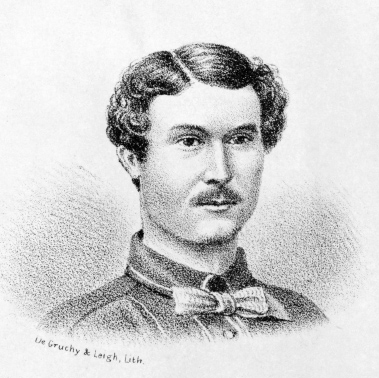
A lithograph, John King Sole Survivor of the Burke and Wills expedition to Carpentaria. Attributed to De Gruchy and Leigh
FRONT COVER
Burkes Death
Painting by William Strutt, which dramatically depicts the death tableaux, complete with revolver in his hand, just as Burke had intended.
COURTESY OF THE STATE LIBRARY OF VICTORIA
Published 2012
by Ulster Historical Foundation,
49 Malone Road, Belfast BT9 6RY
www.ancestryireland.com
www.booksireland.org.uk
Except as otherwise permitted under the Copyright, Designs and Patents Act 1988, this publication may only be reproduced, stored or transmitted in any form or by any means with the prior permission in writing of the publisher or, in the case of reprographic reproduction, in accordance with the terms of a licence issued by The Copyright Licensing Agency. Enquiries concerning reproduction outside those terms should be sent to the publisher.
Eric Villiers
ISBN: 978-1-908448-04-0
DESIGN AND FORMATTING
FPM Publishing
PRINT MANUFACTURE
Jellyfish Print Solutions
Contents
Foreword
Like the rest of my family, I grew up hearing the story of how my forebear, John King, was the first man to cross Australia and return alive. An essential feature of the story was that he survived only through the kindness of the Aboriginal people who looked after him and fed him nardoo seed. In November 2001, through the Australian Aboriginal Ambassador to the European Union, I finally had the opportunity on behalf of my family to thank the Yandruwandha people, for saving my great-great-grand-uncles life.
The Aboriginal Ambassador, Ms Isobel Coe, was calling on me as Speaker of the Northern Ireland Assembly, and the didgeridoo she presented to me in the Speakers Office that day is still displayed in the Stormont Parliament Buildings. It was 140 years after they had saved him, but we are fortunate when in life we can complete unfinished business or right an injustice in our own past or that of our community.
That is also what Eric Villiers is doing in this book, for while John Kings survival ranks alongside any of the thrilling stories of exploration and discovery across the world, his endurance, and ultimate success has never received due attention, not least in his homeland. Mr Villiers not only puts that right in his book, but he also explores the fascinating question of why John King, feted as a hero immediately on his return, then faded from history. It is a special feature of this excellent book that not only historical but social justice is served by telling John Kings story again. I say social justice, because this is not only the extraordinary tale of a heroic working-class Irishman, but the story of the generosity and hospitality of the Aboriginal people of Coopers Creek. Neither should be forgotten.
JOHN, LORD ALDERDICE
HOUSE OF LORDS, LONDON
Acknowledgements
It is thanks to a small band of family genealogists, local historians and conscientious librarians that I was directed towards the realisation that John Kings character and motivation had long been misrepresented. The kernel of this book is the idea that an accident of birth wrongfully excluded Kings name from the ranks of the nineteenth centurys most famous explorers. Across 150 years Burke and Wills historians have been apt to classify King as a sort of accidental, or as one of them put it an unlikely explorer. It is truer to say that young John King determined as the Star Trek quotation has it to boldly go where no man has gone before. Barely past his twentieth year he had already crossed the Atlantic and Indian oceans having attached himself to the Victorian Exploring Expedition long before it set out from Melbourne in 1860 to solve the worlds last continental mystery.
My project was born in the silence of the Irish and Local Studies Library in Armagh where I came across several short articles and pamphlets squeezed into odd spaces around much more prestigious historic tomes. Mostly these papers anonymously written for local history groups or by family descendents sketched the story of King, and although they did not major on his character, they did have a re-occurring theme that was a collective corrective to the general view expressed in historiography that he had gone out into the world uneducated. Here chiefly in the work of the late William Alderdice were the first hints of the injustice done to him and his reputation.
All that is not to say that I dug out this material myself, on the contrary it was the librarys chief officer Mary McVeigh and her deputy Kieran McConville who drew my attention to the various sources. At that early stage I was treating the venture as something that could be usefully turned into a feature article for a regional daily such as the Belfast Newsletter, where it duly appeared, appropriately enough, since the paper had been around to report the crossing in the first place. And so my thanks to Mary and Kieran for helping to kick off the process that culminated in this book.
The feedback from the wider King family, enthusiasts and local historians after that article appeared sparked the idea that there might be a television documentary to be made, particularly so since the 150th anniversary was looming in 201011. I floated the idea with several media contacts before Tom Murphy and Mary Murphy of the stop. watch television company in Dublin expressed an interest in taking it forward with a view to having it commissioned by broadcasters in Dublin and/or Belfast. Unfortunately not long after that, news came through that another Dublin documentary maker was close to finishing a series based on Burke and Wills from an Irish angle. Understandably Stopwatch felt unable to continue.
Nevertheless I have to thank Tom and Mary for their encouragement and direction in that early research, for without it, the book project might not have happened. Prior to their involvement it had not seemed that a story built around King could generate enough material to sustain a book. Afterwards having interviewed, or been in contact with King relatives, including Lord Alderdice, his brother David Alderdice and others like Phil King in New Zealand, a book took shape in my mind.
Gathering the necessary background material in Irish libraries, institutions and newspaper archives was relativity simple my real problem was in sourcing stuff from halfway around the world in Australia. It was here that Australian historian Dave Phoenix, arguably that countrys foremost expert on the Burke and Wills Expedition, came to my rescue. Not only is the website that he helps to administer (www.burkeandwills.net.au) the most comprehensive and easiest to access single source for Burke and Wills information, his guidance helped steer me away from embarrassing mistakes in details. I am sure there are other errors I have made but thanks to Dave I hope the core material is sound.

